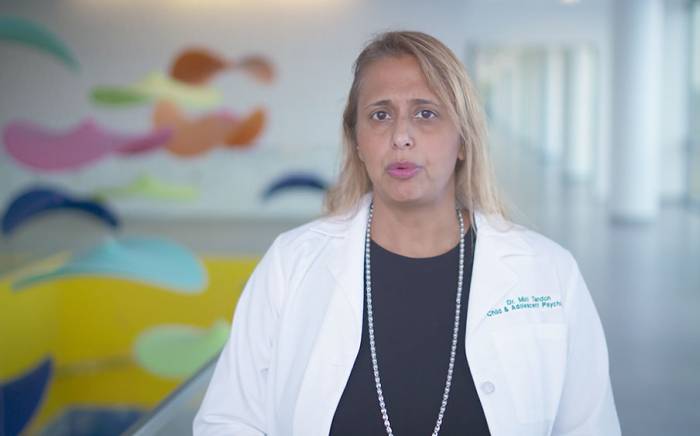The mission of St. Louis Children’s Hospital’s newly established Antimicrobial Stewardship Program (ASP) is to provide patients with the appropriate antimicrobial therapy that results in the best outcome with the least amount of toxicity and resistance. The basic formula for achieving this goal is doing what’s right in terms of dose, drug and duration for each patient.
 “It’s impractical to think that we can just stop using antimicrobials. But we can develop the guidelines and consulting strategies that ensure we are prescribing them in the most safe and effective ways possible for our patients,” says Washington University physician Jason Newland, MD, MEd, infectious diseases specialist and director of the Antimicrobial Stewardship Program. “We’ve received outstanding support and cooperation since introducing the program in August, which speaks to the concern we all have for our patients’ safety and wellness.”
“It’s impractical to think that we can just stop using antimicrobials. But we can develop the guidelines and consulting strategies that ensure we are prescribing them in the most safe and effective ways possible for our patients,” says Washington University physician Jason Newland, MD, MEd, infectious diseases specialist and director of the Antimicrobial Stewardship Program. “We’ve received outstanding support and cooperation since introducing the program in August, which speaks to the concern we all have for our patients’ safety and wellness.”
Several strategies have been developed to achieve the ASP’s goals. The program’s website—stlouischildrens.org/health-care-professionals/resources/clinical-resources/antimicrobial-stewardship-program-asp—features an Antimicrobial Guidebook of empiric treatment recommendations for select infections based upon current guidelines and local antibiogram data. Categories include:
- Bone and joint
- Central nervous system
- Gastrointestinal/abdominal
- Genitourinary tract
- Respiratory tract/HEENT
- Skin and soft tissue
“For instance, if a physician has a patient come into the hospital with a urinary tract infection, the guidebook helps with the decision as to what first-line antibiotic to use prior to receiving all the test results,” explains Dr. Newland.
A second strategy is conducting daily rounds for all patients admitted to the hospital who are prescribed an antibiotic. Dr. Newland and Miranda Nelson, PharmD, talk with all the care teams, providing patient-specific recommendations for appropriate antibiotics or answering questions physicians may have about the drugs.
“We basically are providing a support service to physicians, both within the hospital and in the community,” says Dr. Newland. “Currently, community physicians may consult our website or contact us with any questions they may have. In the future, we will be developing informational materials geared toward community physicians, as well as for patients and families. We are working with the hospital’s Family Advisory Board on how to best construct family-oriented educational materials.”
The program meets Joint Commission criteria addressing antimicrobial stewardship, as well as the state of Missouri’s mandate requiring all ambulatory surgical centers and acute care hospitals to establish an ASP. Integral to the program’s effectiveness is the participation of representatives from areas such as infection prevention and control, quality and safety, health information systems, and microbiology, as well as the cooperation and expertise of clinical pharmacists located on each floor of the hospital.
“We believe that the sustainability and success of our Antimicrobial Stewardship Program will be built upon our ability to communicate and collaborate with the health care teams we serve, which in turn will lead to the best antimicrobial prescribing for our patients,” says Dr. Newland.
To learn more about the Antimicrobial Stewardship Program, contact Dr. Newland at jgnewland@wustl.edu or Miranda Nelson at miranda.nelson@bjc.org. Check the ASP Updates page for new and archived newsletters.







